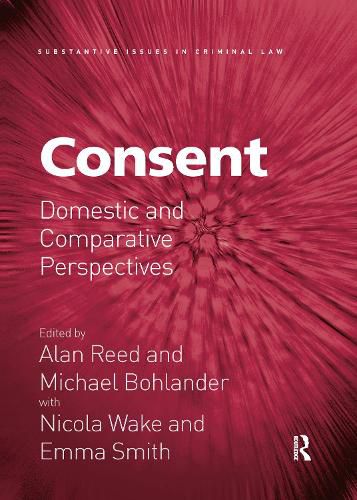Readings Newsletter
Become a Readings Member to make your shopping experience even easier.
Sign in or sign up for free!
You’re not far away from qualifying for FREE standard shipping within Australia
You’ve qualified for FREE standard shipping within Australia
The cart is loading…






This volume presents a leading contribution to the substantive arena relating to consent in the criminal law. In broad terms, the ambit of legally valid consent in extant law is contestable and opaque, and reveals significant problems in adoption of consistent approaches to doctrinal and theoretical underpinnings of consent. This book seeks to provide a logical template to focus the debate. The overall concept addresses three specific elements within this arena, embracing an overarching synergy between them. This edifice engages in an examination of UK provisions, with specialist contributions on Irish and Scottish law, and in contrasting these provisions against alternative domestic jurisdictions as well as comparative contributions addressing a particularised research grid for consent. The comparative chapters provide a wider background of how other legal systems’ treat a variety of specialised issues relating to consent in the context of the criminal law. The debate in relation to consent principles continues for academics, practitioners and within the criminal justice system. Having expert descriptions of the wider issues surrounding the particular discussion and of other legal systems’ approaches serves to stimulate and inform that debate. This collection will be a major source of reference for future discussion.
$9.00 standard shipping within Australia
FREE standard shipping within Australia for orders over $100.00
Express & International shipping calculated at checkout
This volume presents a leading contribution to the substantive arena relating to consent in the criminal law. In broad terms, the ambit of legally valid consent in extant law is contestable and opaque, and reveals significant problems in adoption of consistent approaches to doctrinal and theoretical underpinnings of consent. This book seeks to provide a logical template to focus the debate. The overall concept addresses three specific elements within this arena, embracing an overarching synergy between them. This edifice engages in an examination of UK provisions, with specialist contributions on Irish and Scottish law, and in contrasting these provisions against alternative domestic jurisdictions as well as comparative contributions addressing a particularised research grid for consent. The comparative chapters provide a wider background of how other legal systems’ treat a variety of specialised issues relating to consent in the context of the criminal law. The debate in relation to consent principles continues for academics, practitioners and within the criminal justice system. Having expert descriptions of the wider issues surrounding the particular discussion and of other legal systems’ approaches serves to stimulate and inform that debate. This collection will be a major source of reference for future discussion.